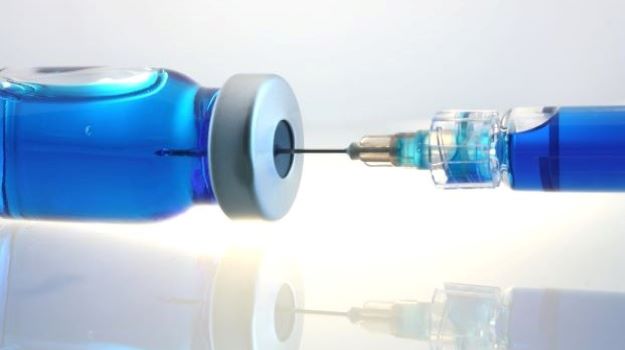Shares of Inovio are down about 2% in premarket trading after reports surfaced of the cancellation of a six-year-old development agreement for a DNA cancer vaccine collaboration related to human papillomavirus with AstraZeneca.

In a U.S. Securities and Exchange filing, Inovio announced the Medimmune Limited, an AstraZeneca business, terminated the development program for INO-3112, a vaccine candidate that became known as MEDI0457. The agreement was first struck in 2015. In the filing, Inovio said the collaboration was terminated in its entirety.
When the two biotechs first struck the deal in 2015, Medimmune gained the rights to INO-3112, designed to target cancers caused by human papillomavirus types 16 and 18. With the deal scrapped, Inovio regains the rights to INO-3112. The Pennsylvania-based company is no longer eligible for any milestone payments or potential royalties from AstraZeneca’s development.
While that particular collaboration was scrapped, Inovio noted in its SEC filing that the companies are both still eligible to develop the asset in other indications. AstraZeneca is currently assessing MEDI0457 in patients with head and neck squamous cell carcinomas (HNSCC). The study is expected to be completed by the end of 2022.
While that deal has been terminated, Inovio has made headway in the ongoing battle against COVID-19 and other infectious diseases. In October, Inovio announced it completed enrollment for its Phase Ib Lassa fever vaccine candidate, INO-4500. The study is taking place in Africa, where Lassa has become endemic in certain regions. The study will include 220 participants.
Lassa fever is an animal-borne, hemorrhagic viral illness that has primarily been observed in parts of West Africa, including Ghana, where the study is taking place. Infection spreads through contact with infected rodents, as well as person-to-person transmission. The Coalition for Epidemic Preparedness Innovations (CEPI) supports the Lassa study. In addition to the Lassa vaccine, the CEPI funding also supports the development of a vaccine candidate for the Middle East Respiratory Syndrome (MERS).
In COVID-19, Inovio has advanced its vaccine candidate into Phase III studies. INO-4800, INOVIO’s DNA vaccine candidate, is composed of a precisely designed DNA plasmid that is injected intradermally. That is followed by electroporation using a proprietary smart device, which delivers the DNA plasmid directly into cells in the body, the company said. The approach is intended to produce a well-tolerated immune response.
The World Health Organization (WHO) supports the Phase III trial, conducted in Columbia, the Philippines, and Mali. The Phase III study will evaluate the efficacy of INO-4800 in a two-dose regimen, administered one month apart. The primary endpoint is the suppression of virologically confirmed COVID-19.
Phase II data posted in May found INO-4800 was well-tolerated provided “broad cross-reactive immune responses, including neutralizing antibodies and robust T cell responses, against variants of concern (alpha, beta, gamma and, in subsequent research, delta)—factors that could be critical in containing COVID-19 as it shifts from pandemic to endemic spread,” the company reported.
